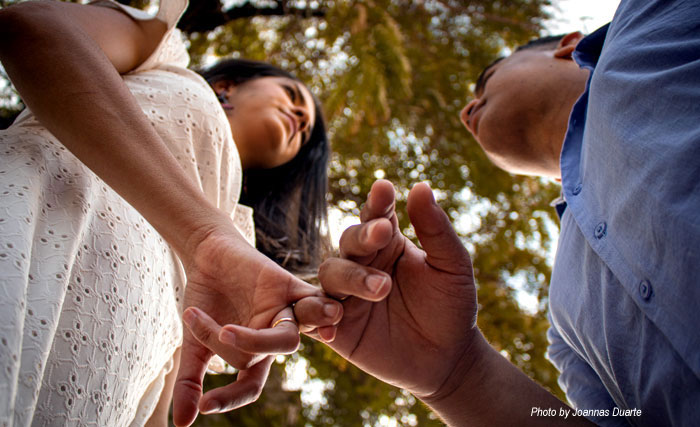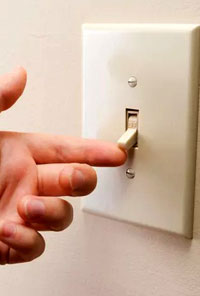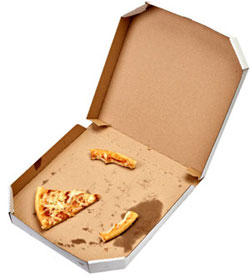
Acceptance vs. Denial
“Acceptance
is the answer to all of my problems today.” That’s what it says in our
book, but when I was first getting sober, I found even that suggestion
difficult to accept.
Fortunately, my sponsor explained that “acceptance” was not the same as
“approval” – we aren’t saying we agree with a given situation, only
that we’re finally willing to see the situation as it actually is. We
were willing to stop arguing with reality.
And then, I heard someone at a meeting put it this way: “The opposite
of acceptance is denial.” Well, that made things a little easier; I was
sick and tired of living in denial.
For years, I saw the world as I thought it should be, instead of how it
actually was. It turns out this is the classic description of denial: a
defense mechanism where someone refuses to accept reality or facts,
especially when trying to protect himself from a truth or reality that
is “painful or uncomfortable” – like admitting I was an alcoholic.
If denial is the problem, no wonder that “acceptance is the answer” –
because (as it also says in our book) “the main problem of the
alcoholic centers in his mind, rather than in his body.”
For me, denial of my alcoholism was so strong, it was practically delusional. One memory in particular stands out. Towards the end of my drinking career, I once
finished my last beer for the evening and went to throw it away under
the kitchen sink (where we also kept the liquor bottles). Suddenly
realizing this might really be my last drink for the evening, I
impulsively grabbed the vodka bottle by its neck and quickly gulped
down a mouthful.
particular stands out. Towards the end of my drinking career, I once
finished my last beer for the evening and went to throw it away under
the kitchen sink (where we also kept the liquor bottles). Suddenly
realizing this might really be my last drink for the evening, I
impulsively grabbed the vodka bottle by its neck and quickly gulped
down a mouthful.
Unfortunately, my wife had quietly followed me in from the living room.
Suddenly, she snapped on the light in the kitchen ceiling, catching me
with the bottle to my mouth.
I was hit by a wave of guilt and shame and blurted out: “I know how
this looks -- but IT’S NOT WHAT YOU THINK!” So much for honesty.
But hang around recovery meetings for a while and you’ll hear lots of
similar stories about denial, most of them more outrageous than mine.
For instance, my friend Dave S. used to take a recovery meeting to the local Navy base’s brig (military prison). One time, a prisoner said he knew he was “powerless over alcohol” but wasn’t convinced that his life had become “unmanageable.” Dave thought for a minute and then quietly asked the man, “You do know you’re in the brig, right?”
Another time, I listened to a newcomer describe his certainty, in the
throes of his disease, that he had finally “beaten the system” by
choosing to live in a personal storage unit. It was a 10’ X 15’ garage-type space he was able to rent for a little
over $100 a month – “so much better than renting an apartment,” he said
confidently.
It was a 10’ X 15’ garage-type space he was able to rent for a little
over $100 a month – “so much better than renting an apartment,” he said
confidently.
“There were some disadvantages, of course,” he admitted, “Like no
running water. And having to go to the bathroom on newspapers – like a
dog.” But on the other hand, he could come and go whenever he wanted
to, “without any nosy neighbors.” And of course, “the price was right,”
he said. “Spending less on rent meant more cash for booze.”
What finally broke through his wall of denial, he explained, was
something that happened one night when he ordered a pizza to be
delivered to his personal storage space.
 “The
guy showed up okay and so I was writing a bad check to pay for the
pizza,” he said. “But then I happened to look up and see the look on
the delivery guy’s face: it was a look of pure pity. He had clearly
never seen someone living the way I was living.” Once the pizza guy
left, he said, our friend broke down sobbing. He realized he just
couldn’t live that way anymore.
“The
guy showed up okay and so I was writing a bad check to pay for the
pizza,” he said. “But then I happened to look up and see the look on
the delivery guy’s face: it was a look of pure pity. He had clearly
never seen someone living the way I was living.” Once the pizza guy
left, he said, our friend broke down sobbing. He realized he just
couldn’t live that way anymore.
A few years ago, while thinking about this story, I asked one of our
more venerated old-timers about it, wondering if I was remembering the
details of this story correctly. The old-timer, Harry K., said that in
fact, he had sponsored that guy and yes, I was remembering it
correctly. “But you left out the best part,” he added.
I did a double-take. “The best part?” I asked. “What could be more outrageous than that?” I wondered out loud.
Harry K. just smiled. “He used to brag that he lived in a gated community!” he said, grinning.
I realized that I could completely identify with our friend’s boasts. “I know how this looks but IT’S NOT WHAT YOU THINK!”
Fortunately, I don’t have to live that way anymore. Our book says that
once we grasp and develop “a manner of living which demands rigorous
honesty,” many of us “do recover if they have the capacity to be
honest.”
Thanks to tapping a Power greater than myself and doing my best to
practice a program of recovery, based on spiritual principles, I’ve
found it possible to live a life that’s based “on life’s terms” instead
of my own terms.
As a result, acceptance – not denial and not alcohol – really has been the answer to all of my problems today.
